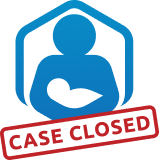
HIE at birth – what questions should parents be asking
HIE (or hypoxic-ischemic encephalopathy) occurs when there is a lack of oxygen and blood flow to the brain. Hypoxia means lack of oxygen. Furthermore, ischemia means lack of blood flow. When these two things happen together to cause brain dysfunction (or brain damage), you have HIE.
HIE can occur during the labor and delivery process. According to a study from 2018, the incidence of HIE is approximately 1.5 per 1000 births. Approximately 3.5 million babies are born in the U.S. every year. That means there are approximately 50,000 cases of HIE ever year in the U.S. That is a frightening statistic.
Your baby is diagnosed with HIE - what questions should you ask?
Despite being a leading cause of death for children under the age of 5, most parents do not know what HIE is. Therefore, most parents do not know what questions to ask when it happens. Below are a list of questions to ask if you are child is diagnosed with HIE:
Why did my child suffer HIE?
This one may sound obvious. But, it is an incredibly important question. It is a question you should ask the doctors, nurses, pediatric staff, and NICU team. You may not get a straight answer at first. That is because HIE is often a product of a medical mistake. Providers are afraid to admit their mistakes. They will try to keep it secret. However, you should keep asking. Keep probing. Eventually, someone will give you answer that is close to the truth.
"Why" is such a simple question. It is only three letters. Just keep asking why. Even once your child is discharged, keep asking his or her doctors what happened. Regardless of the answer, you may want to call a lawyer who specializes in these types of matters to get the whole truth.
What are the treatment options?
Today, the most common treatment for HIE is hypothermia treatment. Basically, the providers keep your child's temperature down for 72 hours. This treatment has proven very effective.
Most hospitals have a "cooling protocol." Hospital protocols certainly help with patient safety. Unfortunately, they can also lead to "cookbook" medicine. Why is this important?
If your child is not breathing at birth, and is in bad condition, you have to ask about HIE and cooling. Significantly, the window to cool is only six hours after the delivery. Time is of the essence. If the window is missed, most providers will not cool. By asking about HIE and cooling right after birth, you are helping to ensure that your baby will get cooled.
What is my child's prognosis?
HIE causes a spectrum of brain damage. After cooling, some babies do well initially. However, many of these children will experience developmental delay as they reach school age.
Sadly, a large percentage of HIE babies have severe brain damage. This brain damage then causes cerebral palsy.
Most providers are hesitant to give a prognosis early on. Yet, it is important for parents not to get the run-around. A realistic prognosis is better than a deceiving one. If your child has damage to several areas of the brain, the prognosis is likely poor.
If your child is diagnosed with a severe form of cerebral palsy, he or she will need extensive therapy. Unfortunately, there is no cure for cerebral palsy caused by HIE.
